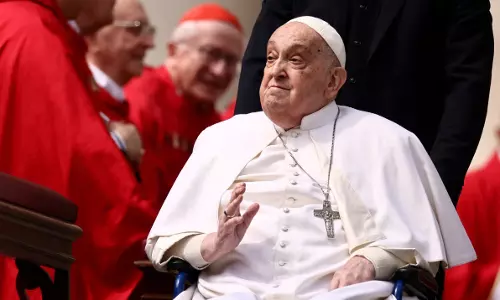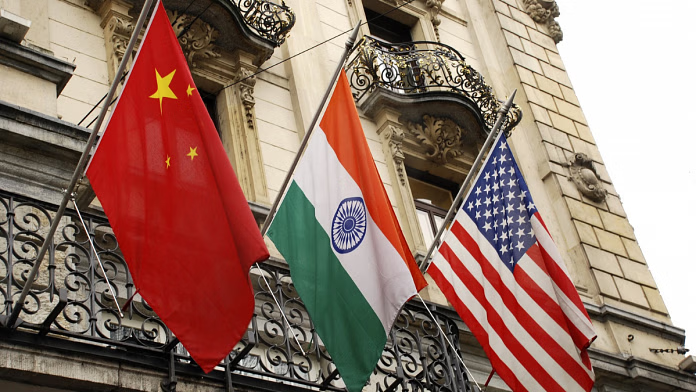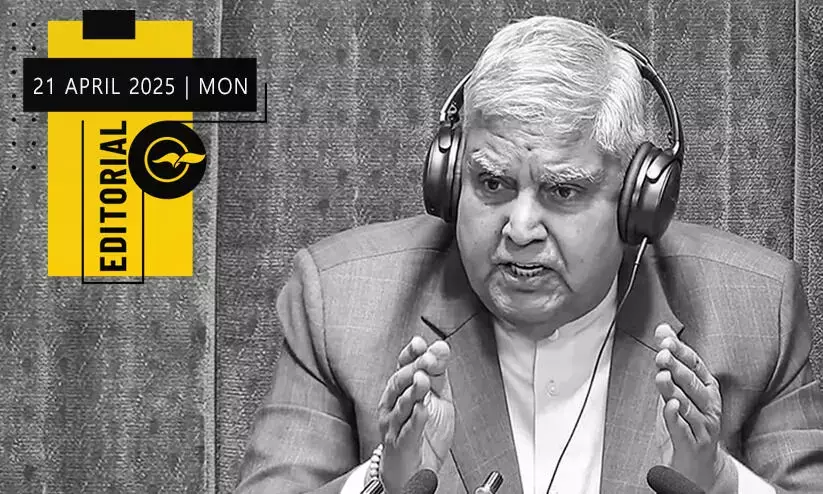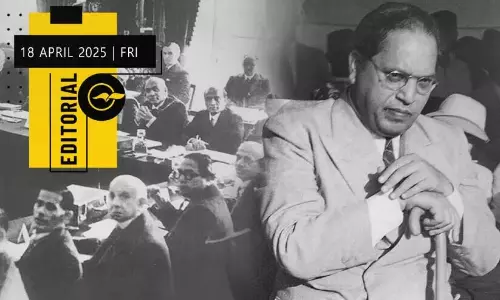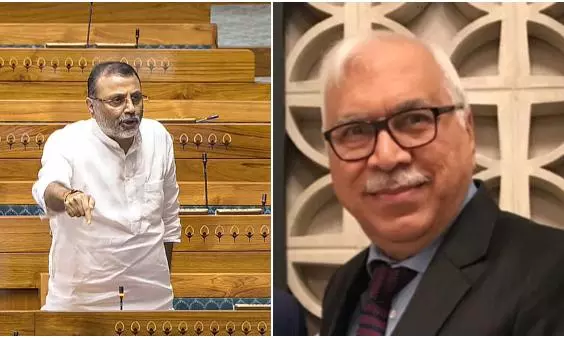
Quraishi hits at Dubey's 'Muslim commissioner' barb, says some use religion for hateful politics
text_fieldsThe contentious remark made by BJP MP Nishikant Dubey, targeting former Chief Election Commissioner S Y Quraishi by identifying him as a 'Muslim commissioner' for commenting on the newly enacted Waqf Act, has been described as coming from someone who uses religion as a staple in advancing their hateful political narratives.
Responding to Dubey, Quraishi said that he believes in an idea of India where individuals are defined by their talents and contributions rather than their religious identity, and suggested that some people use religion as a staple in advancing their hateful political narratives.
The remarks from Quraishi came in response to Dubey’s attack following his criticism of the Waqf (Amendment) Act, which Quraishi had described as a “blatantly sinister evil plan” aimed at grabbing Muslim lands, and the former CEC underlined that India has always stood, and will continue to stand, for constitutional values and institutions.
Emphasising his service in the Indian Administrative Service and the Election Commission, Quraishi said he had performed his duties to the best of his ability and had a long and fulfilling career where his work spoke for itself, but he also added that certain elements in politics weaponise religious identity to spread division.
Backing Quraishi, IAS officer K Mahesh, who serves as the honorary president of the Delhi Administration Officers Academic Forum, said that the former CEC had enriched the Election Commission through his visionary leadership and reforms, and added that India should be proud of civil servants like him who had served with integrity and distinction.
Mahesh recalled how Quraishi, during his tenure, set up significant divisions such as voter education and expenditure control, and even founded the India International Institute of Democracy and Election Management, thereby leaving a lasting institutional legacy.
Further defending Quraishi’s record, Mahesh pointed out that renowned figures like Gopalkrishna Gandhi, grandson of Mahatma Gandhi and C Rajagopalachari had acknowledged Quraishi as one of the most remarkable Chief Election Commissioners India has ever had or is likely to have. Mahesh stressed that Quraishi’s administrative career had been marked by dignity and dedication, and that his contributions should not be overshadowed by politically motivated personal attacks.
Dubey, meanwhile, escalated his criticism of Quraishi by alleging that he had allowed Bangladeshi infiltrators to be added to the voter rolls in Jharkhand’s Santhal Pargana region during his tenure, and in a broader religious commentary, claimed that Waqf lands historically belonged to Hindus, tribals, Jains, or Buddhists before Islam arrived in India in 712. Citing historical grievances, Dubey mentioned the destruction of Vikramshila University by Bakhtiyar Khilji and invoked the legacy of Atish Dipankar, whom he called the world’s first vice chancellor, while calling on citizens to “read history” and “unite the country.”
Dubey’s attack on Quraishi came shortly after his controversial comments against Chief Justice of India Sanjiv Khanna, which caused embarrassment for the BJP and compelled the party to distance itself from his remarks. The BJP MP's religiously-charged statements have triggered widespread condemnation across the political spectrum, as critics argue that such rhetoric undermines India’s pluralistic values and its commitment to constitutional governance.





